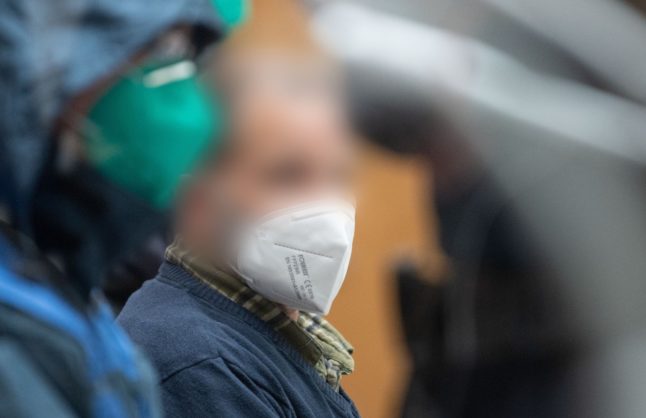The ringleader, named only as Werner S., was handed a six-year prison term after a lengthy trial in Stuttgart that started in 2021.
Another nine members of the organisation, known as Gruppe S (Group S) after the ringleader, were handed sentences ranging from one year and nine months suspended, to five years and three months in jail.
They were convicted of being members of and founding a terrorist organisation. One defendant was acquitted.
Federal prosecutors previously said the suspects planned to spark “a civil-war-like situation” by carrying out “attacks on politicians, asylum seekers and people of Muslim faith”.
The group’s founding members had the goal of “destabilising and ultimately overthrowing” Germany’s democratic order, they said.
Those on trial, all German citizens, had an “openly National Socialist attitude”, referring to the Nazi party, and made no secret of their hatred of foreigners, Muslims and Jews, according to prosecutors.
READ ALSO: Why are some Germans turning towards the far-right?
Investigators say three meetings were organised, where members took part in discussions and shooting exercises.
The group is said to have arranged to buy weapons through a handler known to one of the members, and several other weapons were found during raids when the arrests were made.
They were also accused of planning attacks on politicians including Robert Habeck — who was one of the co-leaders of Germany’s Green party at the time and is now the country’s vice-chancellor.
Concerns have been growing in Germany over the rise of violent right-wing extremism and there have been a series of plots and attacks in recent years.
Last year, members of a group known as the Reichsbürger were arrested over a plan to attack parliament, overthrow the government and install a self-styled prince as head of state.
READ ALSO: Who are ‘Reichsbürger’ and how big a threat do they pose in Germany?
There were around 38,800 people in the right-wing extremist spectrum in Germany in 2022, according to a report presented by the BfV federal domestic intelligence agency in June — up from 33,900 in 2021.
The number considered potentially violent also rose from 13,500 to 14,000.




 Please whitelist us to continue reading.
Please whitelist us to continue reading.
Member comments